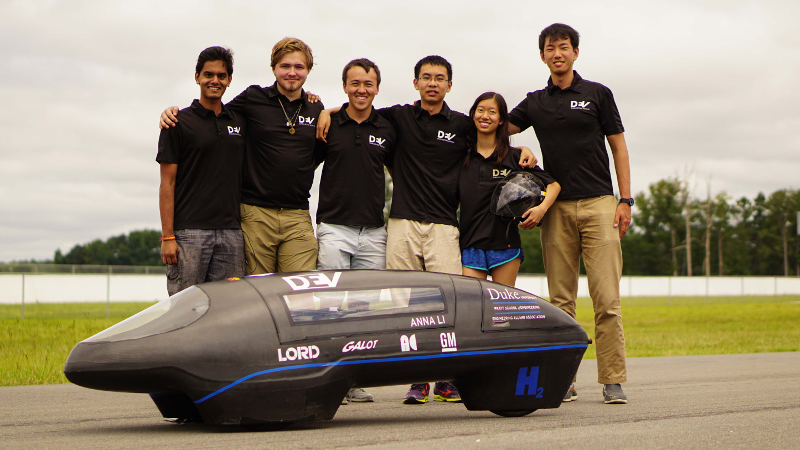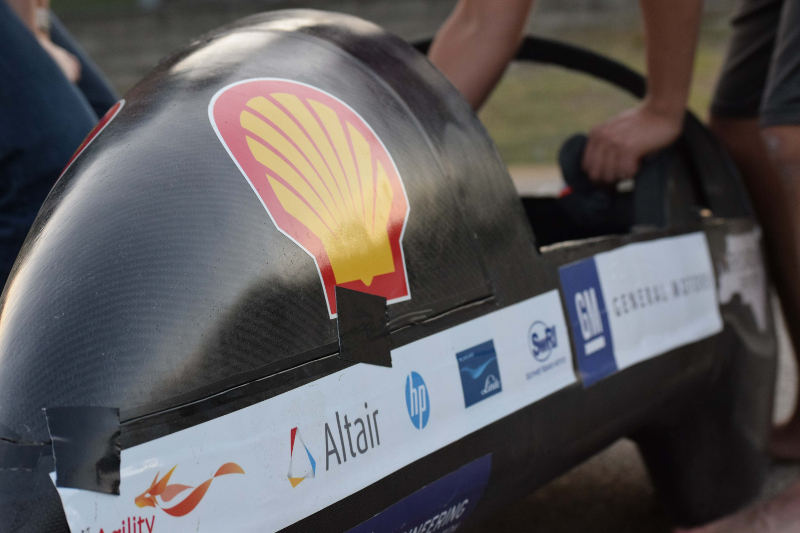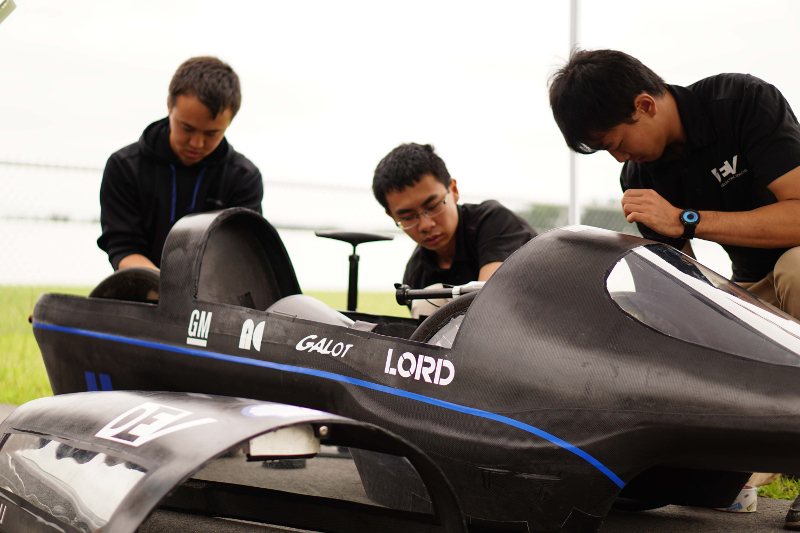The Pieces Required to Break a World Record
By Nimisha Pant
The Duke Electric Vehicles team broke the Guinness World Record for most fuel-efficient vehicle this summer

Duke is home to many basketball championships, Nobel prize winners and groundbreaking medical research. Now, Duke students have achieved another impressive feat— breaking the world record for the most fuel- efficient vehicle in history. Duke Electric Vehicles (DEV), a student-run organization, accomplished this feat at Galot Motorsports in Benson, North Carolina on July 21, 2018.
It is impressive how, despite the demands of being a Duke Engineering student, these students were able to accomplish such an achievement. But when you look closer, they used a simple recipe; the students had a goal and followed a timeline to meet that goal.
 The fall semester for DEV is typically used for strategizing, design conceptualization and training new members. The spring semester is used for manufacturing parts, testing and competitions. DEV initially planned to break the world record at the Shell Eco-Marathon, which they compete in annually in the spring. However, the club members discovered that the magnitude of what they were trying to accomplish warranted more time, so a few students worked on the vehicle all summer until they were able to attain their goal of breaking the world record in July.
The fall semester for DEV is typically used for strategizing, design conceptualization and training new members. The spring semester is used for manufacturing parts, testing and competitions. DEV initially planned to break the world record at the Shell Eco-Marathon, which they compete in annually in the spring. However, the club members discovered that the magnitude of what they were trying to accomplish warranted more time, so a few students worked on the vehicle all summer until they were able to attain their goal of breaking the world record in July.
The members of DEV faced many challenges in the process. The team needed to adjust to implement the fuel cell, which was new this past year and therefore unfamiliar, even to members who had been on the team for years. DEV president Gerry Chen said, “We only had a year to work with the fuel cell, whereas the rest of the parts of the car had been worked on for about seven years.”
Even with many challenges, members of DEV believe key characteristics of the team set them apart from other teams and made it possible for them to achieve the world record. Co-president Shomik Verma noted, “Our team members with vast experience with electronics definitely set us apart.” Chen emphasized that all team members were able to test each component and figure out how to optimize it to create the best overall product, which made DEV’s vehicle that much better than everyone else’s.
 Student groups at Duke can have far-reaching impacts, both inside and outside the Duke community. The impacts are most profound upon the members of the groups. DEV certainly requires team members who are dedicated to working through a product from start to finish and not giving up until it is done.
Student groups at Duke can have far-reaching impacts, both inside and outside the Duke community. The impacts are most profound upon the members of the groups. DEV certainly requires team members who are dedicated to working through a product from start to finish and not giving up until it is done.
The impacts of this impeccable work ethic are far-reaching. When asked how DEV added to his Duke experience, Verma replied, “DEV helped me build confidence in my design decisions.” He continued by expressing that classes ordinarily give specific problems that have one correct answer, while at DEV, students are tasked with choosing from an infinite number of ways to solve a large problem.
Being able to collaborate with a team and work through making real decisions to meet design constraints helped Verma and other students on the team become comfortable and confident in their decisions—a skill that can be translated to most jobs in the real world. Beyond impacts on the team members, DEV is also reaching out to local high schools to help them with their electronics.
Now that DEV has broken the world record for being the most fuel-efficient vehicle, what’s next? The team hopes to create a fully battery-powered vehicle, which would mean breaking yet another world record. They also intend to go a step farther, hoping to eventually make their vehicle autonomous and be able to drive more efficiently that any human could. It seems that there’s much in store for DEV and hopefully they’ll be breaking world records for years to come.
Nimisha Pant is a sophomore studying mechanical engineering at Duke.
